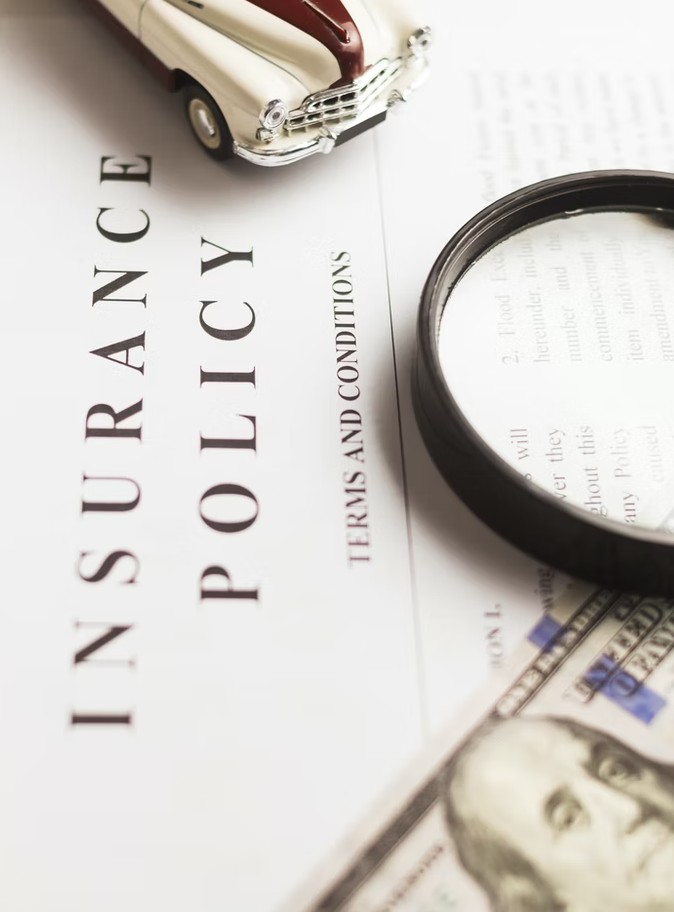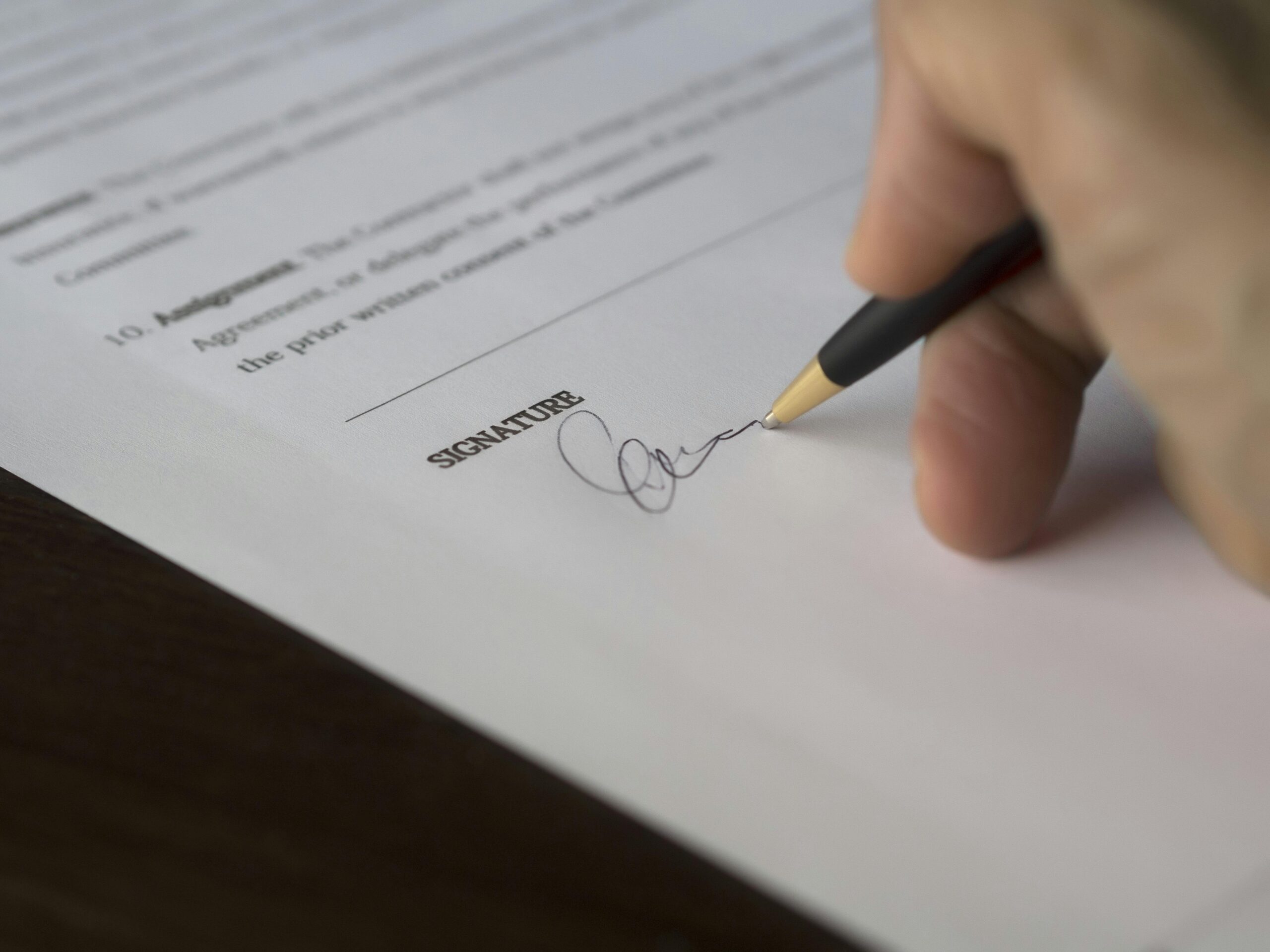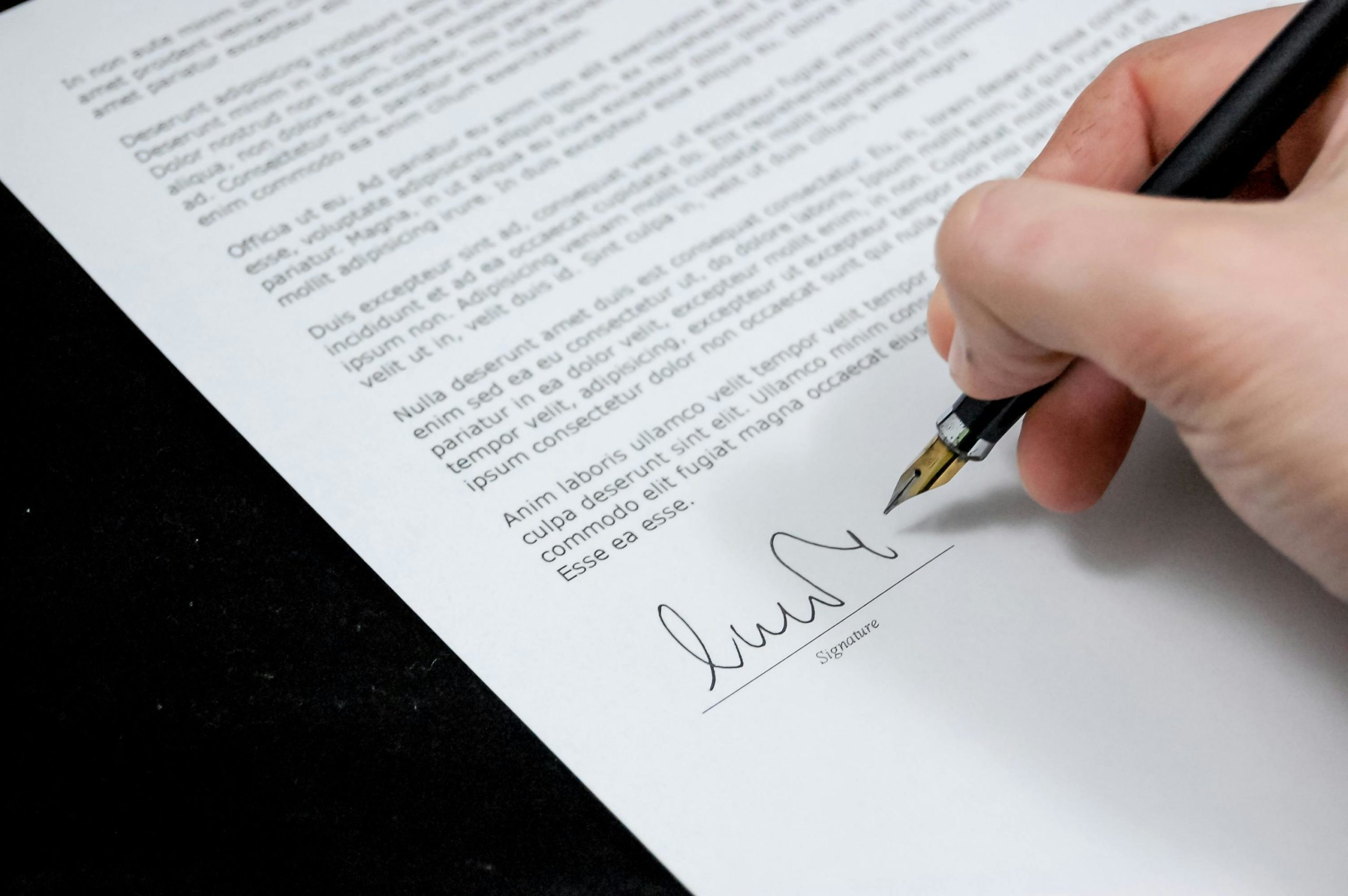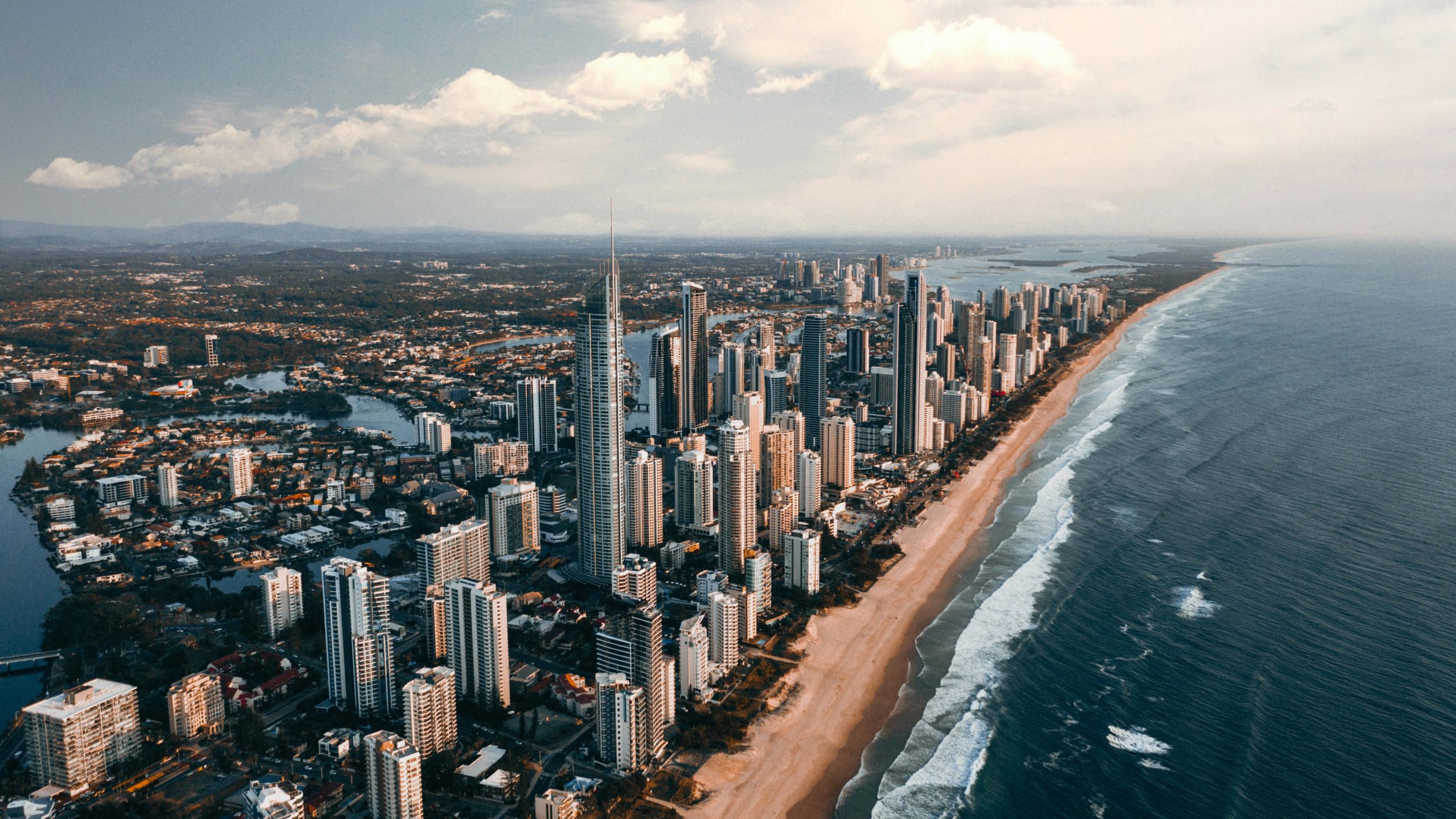The Difference Between Waiting Periods and Benefit Periods in Income Protection Insurance
When it comes to Income Protection Insurance, there are a few terms you’ll hear frequently, but what do they mean? Understanding your Income Protection Insurance cover is essential and can make all the difference when submitting a claim with your cover.
While you may be familiar with how Income Protection Insurance can protect you, there are aspects of your coverage that can be negotiated to ensure that your cover is tailored to benefit you. A commonly asked question is: What is the difference between your Waiting Period and your Benefit Period?
Believe it or not, these two terms are significantly different and can impact your understanding of your Insurance cover if they are misunderstood. So, let’s break it down.
What is my Waiting Period?
The Waiting Period of an Income Protection Insurance cover is defined as the length of time you will need to have between when your absence from work commences due to your illness or injury, to when your insurance benefits and payments can begin. Your illness/injury will need to be certified by a doctor, and your waiting period will be considered from the date this is confirmed. The most common waiting periods to choose from are 30, 60, or 90 days, depending on the terms of your policy.
How your Waiting Period Impacts your Cover
Shorter waiting periods mean your funds will be available to you sooner, though they are usually associated with higher premiums. Whereas longer waiting periods reduce premium costs, they also mean that you will need to rely on savings or other support until you can access your benefits.
Regardless, your first benefit payment will be made to you in arrears. If your waiting period is 30 days, your first payment should be expected around 60 days after you stop working. When choosing your waiting period, it is important to consider your financial circumstances and how long you could comfortably afford to survive without your benefits if necessary. If you’re able to cover yourself financially for longer, your Income Protection Insurance may be lower in cost.
What is my Benefit Period?
The Benefit Period refers to the maximum length of time you can expect your Income Protection payments to be made to you if you remain unable to return to work for that particular claim. Typical benefit periods range from one to five years or up until a specific age, such as 65. A coverage that pays out until 65 will be more costly than a shorter-term benefit period of 1 year. There are policy limits that may apply to your cover. For instance, you need to meet your insurer’s definition of disability and other policy conditions to continue to receive payments, where a Maximum benefit period may apply.
You may also be offered a graduated benefit, depending on your insurer and cover, where, if you can return to work on a part-time basis, your benefit period will be extended until you’re able to return to work at full capacity.
How your Benefit Period Impacts your Cover
Choosing the most suitable Benefit Period for you is essential, as if you are still unable to work when your benefit period ends, your payments will stop. However, a longer benefit period (one that pays up until the age of 65, for example) will be more expensive. Your benefit period only applies to you whilst you are unable to work. So, if you return to work early, your payments will also stop. Choosing the right Benefit period for you depends on several factors, including your job security, age, health status and budget.
It is essential to understand that the Benefit period refers to a single claim and is one of the most significant factors in determining the cost of your cover.
Why choose Morgan Insurance Brokers?
Our team of experts are dedicated to ensuring that we provide you with the reliable advice that you need to make the right choices for your protection. Our approach to Insurance is one that you can trust. We know how complicated understanding your Income Insurance Protection cover can be; with us by your side, it doesn’t need to be.
Contact us today to find out more. We’d love to answer your questions.
How to Choose the Right Income Protection Insurance for Your Needs?
Remember when you completed that long run on the weekend and injured your back so badly you had to miss work the next week? Did you feel the repercussions of a smaller payslip that week?
With Income Protection Insurance at Morgan Insurance Brokers, you don’t need to worry about catching that East Melbourne winter flu, dislocating that dodgy knee, or any other unforeseen circumstances that can occur in day-to-day life.
So, how do you choose the right Income Protection Insurance for your needs? There are several factors to consider before you decide on the right Income Protection Insurance cover.
What if I don’t need Income Protection Insurance?
It is estimated that around 29% of Australians have Income Protection Insurance, with tens of thousands of Australians finding themselves in the position to claim income protection insurance every year. You could be one of them.
You may be hesitant to explore Insurance Protection further if you don’t think you will need it. We all want to believe that serious accidents won’t happen to us. However, Insurance Protection is much more than cover for the worst-case scenario. Some common claim examples include:
- Severe Flu
- Mental Health Break
- Pregnancy Complications
- Broken Leg
- Back injury
These all sound common enough, right?
You can identify the right Insurance cover for you and your needs; it doesn’t all look the same.
So, how different can Income Protection Insurance be?
Well, choosing your Income Protection Insurance begins with your occupation. Occupations with higher levels of physical risk (Construction workers and Emergency service workers) may face higher premiums as they are more likely to face work-related accidents. A lower-risk occupation may be entitled to cheaper Income Protection Insurance cover. If you’re an office worker accustomed to sitting behind a desk all day, you may find that your cover won’t cost you all that much. What price would you pay for a contingency plan?
Another factor to consider is your age. Lower premiums are usually expected with younger age groups. Age is used to determine the increase in premiums due to the correlation between age and the heightened risk of health issues, which may result in extended periods off from work.
Income Protection Insurance can also vary in the percentage of income covered. A higher cover will usually be 75%, although this will be more expensive than a lower cover of 60%.
You can tailor how long you require payments from your Insurance Protection Insurance. If your cover is for a shorter period (e.g, 2-5 years), this may be significantly lower in cost than one that covers you through to retirement age. Do you plan to run a marathon next year, and you’re getting worried about the physical side effects and setbacks it may cause you in your workplace? You can opt for a shorter cover for a stress-free training period.
Finally, you’ll want to assess the waiting periods of your cover. This defines the time between when you find that you require your cover and when the benefit payments begin. For example, if you’re a casual worker who requires a larger safety net in the event of an unforeseen circumstance, you may want to consider a shorter waiting period so that you can ensure you’re covered quickly.
Consider Premium types
When considering your premium types for your Income Insurance Protection Cover, you will need to evaluate your financial circumstances, life plans, age, health, and generally what you feel will be most suitable and comfortable for your situation.
Stepped Premiums are generally lower in cost initially. They can increase over time, but are typically a safer option for young working professionals who want a contingency plan that won’t interfere with their budgets.
Level Premiums are consistent and generally benefit more long-term decisions. Whilst higher in initial cost, they can become more cost-efficient if maintained over many years. If you are expecting a fixed income for the foreseeable future or have begun making retirement plans, a level premium may be more beneficial as it provides stable and predictable cover.
Not sure where to start?
You’re off to a good start. It is important to consider all your personal factors and assess which cover you may benefit from the most. Our professionals at Morgan Insurance Brokers can provide you with general advice and help you get started.
Don’t wait for a situation to happen tomorrow; get protected today. Contact us today for a quote.
Informed Consent Changes
Informed Consent in Insurance Broking: What’s Changed and Why It Matters
As of 10 July 2025, a major shift has taken place in how insurance brokers operate in Australia. The Australian Securities & Investments Commission (ASIC) has introduced new informed consent obligations that directly affect how brokers disclose commissions and obtain client approval.
What Prompted the Change?
Historically, brokers disclosed commissions after a product was recommended. But ASIC’s new rules require brokers to seek client consent before receiving any commission, even if the product hasn’t been finalised. This change is designed to:
- Increase transparency
- Reduce conflicted remuneration
- Strengthen trust between brokers and clients
It’s part of a broader push to ensure clients understand not just the product, but how their broker is compensated and why that matters.
What Brokers Must Now Disclose
Before placing cover or receiving commission (ONLY IF ITS A RETAIL CLIENT, A RETAIL PRODUCT, AND PERSONAL ADVICE HAS BEEN GIVEN) , brokers must clearly explain:
- The name of the insurer (if known)
- The commission rate or range
- The frequency and duration of commission payments
- The services provided in relation to the product
- A statement that client consent is legally required
- A note that once given, consent cannot be withdrawn
This must be done in plain English, either in writing, verbally, or via a secure digital process, and documented for at least five years.
What policy types are impacted?
Under s761G of the Corporations Act 2001 and associated regulations, a retail client in general insurance is a person or small business who buys a general insurance product prescribed as retail.
A general insurance product is treated as retail when it falls into specific retail classes listed in the regulations.
The Retail Classes of General Insurance
The law says that the following insurance types are retail insurance, meaning the policyholder is automatically a retail client:
1. Motor Vehicle Insurance
For private-use or small-business use vehicles.
2. Home Building and/or Contents Insurance
4. Sickness & Accident Insurance
5. Consumer Credit Insurance
6. Travel Insurance
7. Comprehensive Motor-Cycle Insurance
8. Personal & Domestic Property Insurance (Home & Landlords etc)
✔ Anyone buying these is treated as a retail client, whether they are an individual or a qualifying small business.
What About Small Businesses?
A business can still be treated as a retail client if it buys one of the above retail insurance products, regardless of turnover or size.
For other forms of general insurance not on the retail list (e.g., commercial property, liability, marine, engineering), the client is not retail unless certain financial thresholds apply.
What This Means for Clients
For insurance broking clients, this change is empowering. It means:
- You’ll know upfront how your broker is paid
- You can make more informed decisions about your cover
- You’ll be protected from hidden incentives or biased advice
Consent Is Ongoing
This isn’t a one-time formality. Brokers must seek new consent each policy period if personal advice is provided and commission is paid. That includes renewals, changes in insurer, or updates to payment terms.
Why It’s a Good Thing
Informed consent isn’t just a compliance box, it’s a sign of a broker who values transparency and puts your interests first. It helps you:
- Understand the value of the advice you’re receiving
- Compare brokers more fairly
- Build a relationship based on trust, not assumptions
What Do Finance Brokers Do?
What Do Finance Brokers Do?
A question that we get asked all the time!
Finance brokers hold a vital position within the financial sector, serving as the bridge between clients and financial institutions.
Their primary role is to assist both individuals and businesses in identifying and obtaining the most suitable financial products, such as loans, mortgages. By utilising their specialised knowledge and broad network of lenders, finance brokers provide personalised advice, streamline the often complex application processes, and frequently secure more favourable terms and interest rates than clients might be able to achieve independently.
This not only saves clients significant time and effort but also makes navigating the intricate landscape of finance much more straightforward and approachable.
Role and Responsibilities of Finance Brokers
Finance brokers have a range of key responsibilities that ensure they provide valuable services to their clients. These include:
Assessing Clients' Needs:
The adventure begins with getting to know the clients inside out! Finance brokers dive deep into understanding their clients' financial situations, goals, and requirements. This involves gathering detailed information about their income, expenses, assets, liabilities, and future financial plans. It's like piecing together a financial puzzle!
Researching Financial Products:
With a clear picture of their clients' needs, brokers embark on a treasure hunt for the best financial products available in the market. They evaluate different options from multiple lenders, considering factors like interest rates, terms, fees, and features. The goal? To find the perfect match that aligns with their clients' objectives.
Providing Tailored Advice:
Facilitating Loan Applications:
When it's time to secure that perfect financial product, brokers step in to assist with the loan application process. This includes gathering necessary documentation, completing application forms, and ensuring all required information is accurately provided. They also liaise with lenders on behalf of their clients to streamline the approval process, making it as smooth as possible.
Maintaining Client Relationships:
Building and maintaining strong relationships with clients is at the heart of what finance brokers do. They provide ongoing support and advice, helping clients manage their finances effectively over time. This includes regular check-ins, updates on new financial products, and assistance with any future financial needs. It's all about being a reliable partner on their clients' financial journeys.
Types of Finance Brokers
Mortgage Brokers:
These brokers specialise in home loans and mortgages. They help clients find the best mortgage products, whether for purchasing a new home, refinancing an existing mortgage, or investing in property. Mortgage brokers work with various lenders to secure favourable terms and rates for their clients.
Commercial Finance Brokers:
These brokers focus on business loans and commercial finance solutions. They assist businesses in obtaining funding for various purposes, such as expansion, equipment purchase, or working capital. Commercial finance brokers have expertise in navigating the complexities of business finance and can source loans from a wide range of financial institutions.
Asset Finance Brokers:
These brokers deal with loans for purchasing assets like vehicles, machinery, and equipment. They help clients secure financing for both personal and business use, ensuring that the terms and conditions are suitable for the client's financial situation. Asset finance brokers often work with specialised lenders who offer competitive rates for asset purchases.
Insurance Brokers:
Insurance brokers arrange insurance products for their clients, covering areas such as life, health, property, and business insurance. They assess clients' insurance needs, compare policies from different insurers, and provide advice on the best coverage options. Insurance brokers also assist with claims and policy renewals, ensuring clients are adequately protected.
Morgan Finance can assist with Commercial Finance, Asset Finance and Insurance Services.
The Process of Working with a Finance Broker
Initial Consultation:
The journey kicks off with an exciting and crucial first step—a discussion where the finance broker dives deep into understanding the client's financial needs. This involves a thorough discussion about income, expenses, assets, liabilities, and future plans. The broker uses this vital information to grasp what the client aims to achieve and how best to assist them in reaching their financial goals.
Research and Comparison of Financial Products:
Armed with the client's detailed information, the broker embarks on an intensive research mission. They meticulously compare various financial products available in the market, evaluating options from multiple lenders. Factors such as interest rates, terms, fees, and features are scrutinised to find the most suitable products that align perfectly with the client's needs and financial objectives.
Application Process:
Once the ideal financial product is identified, the broker steps in to assist the client in preparing and submitting the loan application. This includes gathering all necessary documentation, completing application forms, and ensuring every detail is accurately provided. The broker also liaises with the lender on behalf of the client, streamlining the process and addressing any queries or issues that may arise, ensuring a smooth and efficient application journey.
Approval and Settlement:
After the application is submitted, the broker diligently follows up with the lender to ensure a seamless approval process. They keep the client informed of the progress and any additional requirements. Once the loan is approved, the broker helps with the settlement process, ensuring all conditions are met and the funds are disbursed as needed. This critical phase is handled with precision and care, ensuring everything falls into place perfectly.
Ongoing Support:
The relationship with a finance broker doesn't end with the settlement—it's just the beginning! Brokers provide ongoing support and advice, helping clients manage their finances effectively over time. This includes regular check-ins, updates on new financial products, and assistance with any future financial needs. The broker remains a valuable resource for clients, offering continuous guidance and support, ensuring they stay on track to achieve their financial goals.
Regulatory Environment and Qualifications
Regulatory Bodies:
In Australia, finance brokers are governed by the Australian Securities and Investments Commission (ASIC). This regulatory body ensures that brokers adhere to stringent standards and practices, maintaining the integrity and reliability of the financial services industry.
Licensing Requirements:
To operate legally, finance brokers must obtain an Australian Credit Licence (ACL). This licensing requirement ensures that brokers possess the necessary qualifications and comply with all regulatory standards, safeguarding the interests of their clients.
Professional Associations:
Many finance brokers are affiliated with professional associations such as the Finance Brokers Association of Australia (FBAA) and the Mortgage & Finance Association of Australia (MFAA). These associations provide additional oversight, support, and resources, helping brokers maintain high professional standards.
Educational Qualifications:
Finance brokers typically hold relevant qualifications, such as a Certificate IV in Finance and Mortgage Broking or a Diploma of Finance and Mortgage Broking Management. These educational credentials equip brokers with the essential knowledge and skills required to offer professional and informed financial advice to their clients.
Benefits of Using a Finance Broker
Expertise:
Imagine having a financial wizard by your side! Finance brokers bring a treasure trove of specialised knowledge about the financial market. They provide expert advice tailored to your unique needs, helping you navigate the complexities of financial products with confidence and ease.
Time-Saving:
Say goodbye to endless hours of research and paperwork! Finance brokers handle all the heavy lifting, from comparing products to negotiating terms. This means you can focus on what truly matters in your life or business, while they work their magic behind the scenes.
Access to a Wide Range of Products:
Unlock a world of possibilities! Brokers have access to an extensive network of lenders and financial institutions, offering you a large range of options that you might not even know existed. It's like having a VIP pass to the best financial deals out there.
Personalised Experience:
Experience the luxury of personalised service! Finance brokers take the time to understand your unique financial situation and goals. They craft customised solutions that perfectly align with your needs, ensuring you get the best possible outcomes.
Negotiation Power:
Get ready to score amazing deals! Thanks to their strong relationships with lenders and top-notch negotiation skills, brokers often secure more favourable terms and interest rates than you could achieve on your own. It's like having a seasoned negotiator fighting for your best interests.
Partner with Morgan Finance today and experience the difference expert guidance can make. Contact us now to get started on your path to financial success!
What Do Insurance Brokers Do?
Introduction: Brief Overview of the Insurance Industry
The insurance industry is a key part of our financial system, offering protection against various risks. It includes different types of insurance like life, health, property, and liability insurance, all designed to protect people and businesses from financial losses.
Insurance works by pooling risk. This means that the premiums paid by policyholders are used to cover the losses of those who make claims. This system provides financial security and helps keep the economy stable by allowing businesses to operate confidently and individuals to plan for the future.
The industry is heavily regulated to ensure fairness and transparency. The three regulatory bodies for the insurance industry are Australian Prudential Regulatory Authority (APRA), Australian Securities and Investments Commission (ASIC), and Australian Competition and Consumer Commission (ACCC) and they oversee insurance companies to protect consumers and maintain trust.
Importance of Insurance for Individuals
Insurance is vital for individuals because it provides a financial safety net against unexpected events. For example, income protection insurance ensures you're able to afford your lifestyle if you're unable to work because of a sickness or injury, while home and car insurance protect your valuable assets from damage or loss. Life insurance offers financial support to your loved ones in the event of your death, helping them manage expenses and maintain their standard of living. Overall, insurance gives individuals peace of mind, knowing they are protected against various risks.
Importance of Insurance for Businesses
For businesses, insurance is crucial for managing risks and ensuring continuity. It helps cover significant losses from events like property damage, public liability claims, and employee injuries, which could otherwise lead to financial ruin. Many types of insurance, such as workers' compensation and public liability insurance, are legally required, ensuring compliance with regulations.
What is an Insurance Broker?
An insurance broker is a professional who acts as an intermediary between clients and insurance companies. Insurance Brokers work independently to find the best insurance policies for their clients' needs. They provide expert advice, help clients understand their options, and assist in securing the most suitable coverage.
Types of Insurance Brokers
Personal Insurance Brokers:
Specialise in insurance products for individuals, such as life insurance, income protection insurance, TPD, Trauma and Keyperson Insurance. They help clients find policies that protect them personally.
General Insurance Brokers:
Caters to the insurance needs of both businesses and individuals. This includes coverage for property (whether commercial or domestic), commercial or private use vehicles, public liability, workers' compensation, and other types of commercial insurance. General insurance brokers play a crucial role in helping clients manage risks and protect their assets effectively.
Key Responsibilities of an Insurance Broker
So what does an Insurance Broker Do? Insurance brokers have several key responsibilities, including consulting with clients to understand their insurance needs, researching and comparing policies, negotiating terms and premiums, and assisting clients with claims to ensure they receive fair settlements.
Morgan Insurance has a 10 step approach to every new client that they assist - we call it our 10 Step Action Plan which includes:
- Initial Contact: Respond promptly to our client queries within minutes or the hour of the initial request.
- Client Consultation: Meet with the client to understand their specific requirements, financial situation, and risk profile; alternatively, we can meet over the phone.
- Needs Assessment: Conduct a thorough assessment of the client's current insurance coverage and identify any gaps or additional needs.
- Market Research: Research various insurance policies from different providers to find the best options that meet the client's needs.
- Policy Comparison: Compare the features, benefits, and costs of the shortlisted policies, highlighting the pros and cons of each.
- Negotiation: Negotiate with the insurance companies to secure the best possible terms and premiums for the client.
- Recommendation: Present our clientgs with a detailed report of the best policy options, providing professional advice on the most suitable choice.
- Policy Selection: Assist the client in selecting the preferred insurance policy and completing the necessary application forms.
- Policy Issuance: Ensure the policy is issued correctly and all documentation is provided to the client.
- Ongoing Support: Provide continuous support to the client, including policy reviews, updates, and assistance with any claims or queries.
What are the benefits of insurance an insurance Broker?
Insurance brokers provide expert advice, save you time by handling research and paperwork, and offer access to a wide range of insurance options to ensure you get the best coverage at the best price.
How to choose the right Insurance Broker?
To select the right insurance broker, start by verifying their credentials and licenses. Next, evaluate their experience in the specific type of insurance you require. Take the time to read reviews and testimonials from other clients. These firsthand accounts can provide valuable insights into the broker's reliability, professionalism, and overall service quality. Look for patterns in the feedback, such as consistent praise for their responsiveness and expertise, or any recurring issues that might be red flags. This will help you make a more informed decision and choose a broker who is well-regarded and trustworthy.
Conculsion
In conclusion, insurance brokers play a vital role in helping clients navigate the complex world of insurance. They provide expert advice, save you time by handling research and paperwork, and offer access to a wide range of insurance options to ensure you get the best coverage at the best price. By understanding their key responsibilities and the benefits they offer, you can make an informed decision when choosing the right broker for your needs.
If you're looking for personalised and professional assistance with your insurance needs, don't hesitate to reach our to us today.
What Insurance Does a Nightclub Need?
Running a nightclub is an exciting venture, but it comes with its own set of unique risks and challenges. From the bustling dance floors to the vibrant bar areas, nightclubs are dynamic environments where accidents, theft, and property damage can occur. This is why having comprehensive nightclub insurance is crucial. Nightclub insurance not only protects your business from financial losses due to unforeseen events but also ensures the safety and well-being of your patrons and staff. By securing the right coverage, you can focus on creating memorable experiences for your guests, knowing that your business is safeguarded against potential risks.
Public Liability Insurance for Nightclubs
Nightclubs are vibrant and dynamic environments, often filled with large crowds, loud music, and the consumption of alcohol. These factors can significantly increase the likelihood of accidents and incidents occurring. Public liability insurance provides a safety net for nightclub owners, ensuring that they are protected against the financial repercussions of such events.
Coverage for Legal Costs and Compensation
One of the primary benefits of public liability insurance is that it covers legal costs and compensation claims. If a patron slips and falls, or if there is an altercation that results in injury, the nightclub could be held liable. Legal fees and compensation payouts can be substantial, potentially crippling a business financially. Public liability insurance ensures that these costs are covered, allowing the nightclub to continue operating without the burden of unexpected expenses.
Protection Against Property Damage
In addition to covering personal injuries, public liability insurance also protects against property damage in which you're liable for. Nightclubs often have expensive dj's featuring, and the dj's equipment, such as sound systems, lighting, and furniture could get could be accidentally damaged by your patrons. Public Liability Insurance can assist with the cost of repairs or replacement.
Business Package Insurance
Business package insurance is important for a nightclub because it combines multiple types of coverage into one policy, protecting against various risks such as property damage, and business interruption and theft.
Property Damage Insurance
This type of insurance covers damage to your nightclub’s physical assets, including the building, furniture, fixtures, and fittings. It protects against risks such as fire, and natural disasters. Considering the high value of equipment like sound systems and lighting, property damage insurance is vital.
Protection Against Fire
One of the most significant risks for any nightclub is fire. Whether caused by electrical faults, kitchen accidents, or even arson, fires can cause extensive damage in a short amount of time. Property damage insurance covers the cost of repairs or rebuilding, allowing you to recover and reopen your nightclub as quickly as possible. This coverage is crucial for maintaining business continuity and minimising downtime.
Natural Disaster Coverage
Australia is no stranger to natural disasters, including floods, storms, and bushfires. These events can cause significant damage to your nightclub’s physical assets. Property damage insurance typically includes coverage for natural disasters, helping you manage the financial impact of such events. This coverage is essential for protecting your investment and ensuring the long-term viability of your business.
Machinery Breakdown Insurance
Nightclubs rely heavily on machinery such as refrigeration units, air conditioning, and sound systems. Machinery breakdown insurance covers the repair or replacement of these essential items if they fail. It can also cover the loss of income due to machinery breakdown.
Money Insurance
Money insurance covers the loss of cash on the premises, in transit, or in a safe. Given the cash-intensive nature of nightclub operations, this insurance provides peace of mind against potential financial losses.
Theft Insurance
Nightclubs often handle large amounts of cash and valuable stock, making them targets for theft. This insurance can also cover the cost of repairing damage caused during a break-in.
Glass Insurance
Glass insurance covers the cost of replacing broken windows, mirrors, and glass fixtures. This is particularly important for nightclubs, where glass breakage can occur due to accidents or vandalism.
Management Liability Insurance
Management liability insurance protects the nightclub’s management team against claims of mismanagement, including employment practices liability, statutory liability, and directors’ and officers’ liability. This coverage is essential for safeguarding the personal assets of your management team.
Protection Against Claims of Mismanagement
Management liability insurance provides coverage for claims related to mismanagement, which can arise from a variety of situations. These claims might include allegations of financial mismanagement, breach of duty, or failure to comply with regulations. Without this insurance, the management team could face significant legal costs and potential personal financial liability.
Employment Practices Liability
One of the key components of management liability insurance is employment practices liability. This covers claims related to employment issues such as wrongful termination, discrimination, harassment, and other workplace disputes. In the high-energy environment of a nightclub, where staff interactions are frequent and varied, this coverage is vital for protecting against costly legal battles and ensuring fair treatment of employees.
Statutory Liability
Statutory liability coverage protects the management team against fines and penalties arising from breaches of statutory obligations. This can include violations of health and safety regulations, licensing requirements, and other legal standards that nightclubs must adhere to. Having this coverage ensures that your management team can navigate regulatory compliance with confidence, knowing they are protected against potential financial repercussions.
Safeguarding Personal Assets of the Directors' and Officers'
One of the most significant benefits of management liability insurance is the protection it offers to the personal assets of the management team. Without this insurance, managers, directors, and officers could be personally liable for claims made against them, putting their personal finances at risk. Management liability insurance provides a safety net, ensuring that personal assets are safeguarded against professional risks.
Workers’ Compensation Insurance
Workers’ compensation insurance is mandatory in Australia and covers employees who are injured or become ill due to their work. It provides wage replacement and medical benefits to employees, ensuring they are supported during their recovery. Each state and territory in Australia has its own workers' compensation scheme, which is governed by local laws and regulations. These schemes are responsible for providing insurance coverage to employees within their jurisdiction. For example:
-
- Queensland: Managed by WorkSafe Queensland.
- New South Wales: Overseen by SafeWork NSW and obtained via icare insurance
- Victoria: Administered by WorkSafe Victoria
Motor Vehicle Insurance
If your nightclub owns vehicles for business purposes, motor vehicle insurance covers damage to the vehicles and liability for any injuries or damage caused by the vehicles.
Conclusion
By securing comprehensive insurance coverage, nightclub owners can protect their business from financial losses, ensure compliance with legal requirements, and maintain a safe and enjoyable environment for patrons and staff. Morgan Insurance Brokers specialise in providing comprehensive insurance solutions for nightclubs, bars, pubs, and other hospitality venues. Reach out today!
Navigating Strata Insurance with Building Defects
As a strata insurance specialist at Morgan Insurance Brokers, I understand the unique challenges that come with securing insurance for buildings with defects. While it may seem daunting, my expertise and dedication ensure that my clients receive the coverage they need, even in complex situations.
Understanding Strata Insurance and Building Defects
Strata insurance is designed to cover common property and areas shared by all owners within a strata-titled building. However, when defects are present, obtaining insurance can become more complicated. Defects can range from minor issues like cosmetic damage to significant structural problems that may impact the building’s safety and integrity.
The Importance of Specialist Knowledge
Navigating the intricacies of strata insurance requires a deep understanding of both the insurance market and the specific needs of strata properties. As a specialist, I leverage my extensive knowledge and experience to identify the best possible solutions for my clients. This includes:
- Thorough Assessments: While I do not conduct the assessments myself, I can provide guidance on engaging third-party specialists to perform detailed inspections of the building to understand the extent and nature of the defects.
- Tailored Solutions: Working closely with insurers to negotiate terms that address the specific risks associated with the defects.
- Risk Mitigation: Advising on measures that can be taken to mitigate risks, such as repairs or maintenance, to make the property more insurable.
Overcoming Challenges
Securing insurance for buildings with defects often involves overcoming several challenges:
- Higher Premiums: Insurers may charge higher premiums due to the increased risk associated with defects. My role is to negotiate the best possible rates and terms for my clients.
- Exclusions and Limitations: Policies may include exclusions or limitations related to the defects. I ensure that my clients are fully aware of these and work to minimize their impact.
- Compliance and Regulations: Ensuring that the building complies with all relevant regulations and standards is crucial. I assist my clients in navigating these requirements to avoid potential issues.
The Morgan Insurance Brokers Advantage
At Morgan Insurance Brokers, we pride ourselves on our client-focused approach. Our commitment to excellence means that we go above and beyond to secure the best outcomes for our clients. Here’s what sets us apart:
- Personalized Service: We take the time to understand each client’s unique situation and provide tailored advice and solutions.
- Expert Negotiation: Our strong relationships with insurers enable us to negotiate favorable terms and conditions.
- Ongoing Support: We offer continuous support throughout the policy period, assisting with claims and any other issues that may arise.
Detailed Assessments: The First Step
The first step in securing strata insurance for a building with defects is conducting a thorough assessment. This involves a detailed inspection of the property to identify all existing defects. These assessments are crucial as they provide a clear picture of the building’s condition and help in formulating a strategy to address the issues.
While I do not conduct these assessments myself, I can provide guidance on engaging third-party specialists such as building inspectors and engineers. This comprehensive approach allows us to present a complete and accurate report to the insurers, which is essential in negotiating the best possible terms.
Tailored Solutions: Meeting Unique Needs
Every building is unique, and so are its defects. Therefore, a one-size-fits-all approach does not work when it comes to strata insurance. At Morgan Insurance Brokers, we specialize in creating tailored solutions that meet the specific needs of each client.
This involves working closely with insurers to understand their requirements and finding ways to address the risks associated with the defects. By presenting a well-documented assessment and a clear plan to mitigate the risks, we can often secure better terms and lower premiums for our clients.
Risk Mitigation: Proactive Measures
One of the key aspects of securing insurance for buildings with defects is risk mitigation. This involves taking proactive measures to address the defects and reduce the associated risks. Depending on the nature of the defects, this could include repairs, maintenance, or even structural modifications.
As a specialist, I provide my clients with detailed advice on the best ways to mitigate risks. This not only helps in securing insurance but also ensures the long-term safety and integrity of the building. By addressing the defects proactively, we can often negotiate better terms with insurers and reduce the overall cost of insurance.
Higher Premiums: Negotiating the Best Rates
One of the biggest challenges in securing insurance for buildings with defects is the higher premiums. Insurers often charge higher rates due to the increased risk associated with the defects. However, this does not mean that clients have to accept the first offer they receive.
At Morgan Insurance Brokers, we leverage our strong relationships with insurers to negotiate the best possible rates for our clients. By presenting a detailed assessment and a clear plan to mitigate the risks, we can often secure lower premiums and better terms. Our goal is to ensure that our clients get the coverage they need at a price they can afford.
Exclusions and Limitations: Understanding the Fine Print
When it comes to insurance policies, the devil is often in the details. Policies for buildings with defects may include exclusions or limitations that can significantly impact the coverage. It is essential to understand these exclusions and limitations to avoid any surprises down the line.
As a specialist, I ensure that my clients are fully aware of all the terms and conditions of their policies. I take the time to explain the fine print and help them understand the implications of any exclusions or limitations. This ensures that they are fully informed and can make the best decisions for their properties.
Ongoing Support: A Partner You Can Rely On
Securing insurance is just the first step. At Morgan Insurance Brokers, we believe in providing ongoing support to our clients throughout the policy period. This includes assisting with claims, providing advice on risk management, and addressing any issues that may arise.
Our commitment to excellence means that we are always there for our clients, providing the support they need to navigate the complexities of strata insurance. Whether it’s a question about a policy or assistance with a claim, our clients can rely on us to provide timely and effective support.
Conclusion
Securing strata insurance for buildings with defects is undoubtedly challenging, but with the right specialist by your side, it is entirely achievable. At Morgan Insurance Brokers, we are dedicated to providing our clients with the expertise and support they need to navigate these complexities successfully. If you have a strata property with defects and need insurance, don’t hesitate to reach out to us. We’re here to help you every step of the way.
The Importance of Risk Management and Proper Cleaning Procedures in Cafés and Restaurants
The Importance of Risk Management and Proper Cleaning Procedures in Cafés and Restaurants
Running a café and restaurant involves more than just serving great coffee and delicious food. Ensuring the safety of your patrons and staff is paramount, and this is where risk management and proper cleaning procedures come into play. Here’s why these practices are crucial:
Prevent Injuries
Regular cleaning and maintenance are essential to prevent accidents like slips and falls, which are common in busy environments with spills and wet floors. By ensuring a safe environment, you protect both your patrons and staff from potential injuries, creating a welcoming and secure atmosphere for everyone.
Prevent Public Liability Claims
Maintaining a clean and hazard-free space significantly reduces the likelihood of accidents that could lead to public liability insurance claims. These claims can be costly and time-consuming, impacting your business financially. By proactively managing risks, you can avoid the financial strain and operational disruptions that come with handling such claims.
Prevent Reputation Harm
A clean and well-maintained café reflects positively on your business. It shows that you care about your customers’ safety and well-being, which helps build trust and a good reputation. Conversely, frequent accidents and claims can harm your reputation and deter customers from visiting your establishment.
Insurance Implications
Public liability claims can have a profound impact on your ability to obtain or maintain insurance coverage. When a business experiences frequent claims, insurers may categorise it as high-risk. This perception can lead to several negative consequences, including significantly higher premiums, which increase your operational costs. In some cases, insurers might even deny coverage altogether, leaving your business vulnerable to financial losses from future incidents.
To mitigate these risks, it is crucial to implement thorough cleaning processes and robust risk management strategies. Regularly scheduled cleaning routines help ensure that potential hazards, such as spills or debris, are promptly addressed, reducing the likelihood of accidents. Additionally, comprehensive risk management plans that include staff training on safety protocols and proper maintenance of equipment can further demonstrate your commitment to minimising risks.
Examples of good cleaning procedures/Risk Management:
Clear Walkways
Keep walkways, doorways, and hallways free of obstructions such as boxes, cords, and equipment.
Regular Inspections
Conduct regular inspections of the premises to identify and address potential hazards
Prompt Spill Management
Clean up spills immediately and place wet floor signs to alert customers and staff of the hazard. The more the better.
Regular Cleaning and Maintenance
Ensure that floors are cleaned regularly to remove spills, grease, and debris.
Employee Training
Train employees on proper cleaning procedures, spill management, and safety protocols. Effective employee training is crucial for maintaining a safe café environment. Staff must be well-versed in proper cleaning procedures, spill management, and safety protocols, and consistently apply them because procedures are only good if they are implemented. Regular training sessions, clear communication, and accountability measures ensure that employees understand and follow these procedures.
By taking these proactive measures, you not only create a safer environment for your patrons and employees but also build a strong case for insurers. Showing that you are diligent about maintaining a safe and clean establishment can reassure insurers that you are a responsible business owner, potentially leading to more favourable insurance terms and lower premiums. Ultimately, these efforts help protect your business from the financial and reputational damage that can arise from public liability claims.
Nomination of Beneficiaries for Your Life Insurance: A Comprehensive Guide
Nominating beneficiaries for your life insurance policy is a crucial step in ensuring that your loved ones are financially protected if you pass away. By making a nomination, you designate individuals who will receive the proceeds of your life cover. These individuals are known as your beneficiaries. You can specify what proportion of the benefit each beneficiary will receive, and you can update your nominations at any time to reflect changes in your circumstances.
Who Can Be Nominated for Your Life Insurance?
The rules for nominating beneficiaries depend on whether your life insurance policy is held inside or outside of superannuation. Policies held within a superannuation structure have stricter rules, and nominations must comply with superannuation laws.
For policies inside superannuation, you can nominate:
Dependents:
This includes your spouse, de facto spouse, legally married spouse, same-sex partner, and children (including adopted children) as defined under the Family Law Act 1975. It also includes any person who is financially dependent on you or someone with whom you have an interdependency relationship.
Interdependency Relationship:
This refers to individuals with whom you share a close personal relationship, live together, and provide mutual domestic, financial, and personal support.
Legal Personal Representative (Your Estate):
This is the executor of your estate, who will distribute your life insurance benefits according to your will or state-based intestacy laws if no valid will exists.
Making a Valid Nomination for Your Life Insurance
To ensure your loved ones can access your life insurance benefits quickly and with peace of mind, it is essential to make a valid nomination. This typically involves having two witnesses sign your nomination form. The nomination must be completed in writing, either as part of the initial insurance application or by submitting a separate nomination form to your insurer at a later date.
If no valid nomination is in place, the proceeds of your life insurance policy may be paid to your estate (if the policy is held outside of superannuation) or to the trustee of the policy (if held within superannuation). The trustee will then decide how to distribute the proceeds, which can be a lengthy process and may cause stress for potential beneficiaries if disputes arise.
Considerations for Tax Consequences
It's important to be aware that there may be tax implications depending on who you nominate as your beneficiary. These tax consequences should be considered carefully before making your nomination.
To ensure your nominations are valid and up-to-date, consider consulting with Morgans Insurance Advisors as your preferred life insurance broker. We can help you navigate the complexities of life insurance nominations and ensure your loved ones are protected.
Get a QuoteUnderstanding Stepped Premiums: A Detailed Guide
When it comes to life insurance, understanding how life insurance premiums are influenced and calculated is crucial. One such type is stepped premiums, which increase each year in line with your age. This approach helps insurance companies manage their risk. Generally, the older you get, the higher your stepped premium will be. At this point, you might choose to continue paying the increased premium, reduce your insurance coverage, or even cancel your policy altogether.
Stepped vs. Level Premiums
Stepped premiums are initially less expensive than level premiums. However, depending on when your insurance was implemented (considering your age and occupation at the time), a stepped premium may eventually become more expensive than a level premium. This shift depends on factors like your age, occupation, and the duration of your policy.
Factors Influencing Stepped Premium Increases
Several factors can cause your stepped premiums to rise:
Indexation
Indexation on your insurance (including Life, Total and Permanent Disability, Trauma, and Income Protection Insurance) will increase your premiums. As the amount of your insurance coverage increases, so will the corresponding premium, calculated based on the increase due to indexation and your age.
Government Stamp Duty
Changes to legislated government stamp duty in each State and Territory can affect the cost of your insurance premiums. Depending on your coverage, you may be legally required to pay stamp duty, which is reflected in your life insurance premiums.
Premium Rate Reviews
Life insurance companies periodically review premium rates. If the cost of coverage increases beyond the insurance companies’ expectations, a rate increase may apply to all customers. These revised premiums could result from an increase in claims or changes in the economic environment. In such cases, the insurance company will notify clients of these changes.
Expiry of Discounts
In certain circumstances, stepped premiums may increase due to the expiration of initial or term discounts on policies like Life, Total and Permanent Disability, Trauma, and Income Protection Insurance.
Policy Changes
Any changes you request to your policy in line with your evolving needs can also affect stepped premiums. These changes might decrease your premiums. For instance, you can remove optional benefits or have loadings reviewed if they have been applied to your policies.
Managing Increasing Premiums
If your policy increases have become burdensome, it’s wise to have your life insurance policy reviewed by Morgan Insurance Advisors—obligation-free. Before reviewing your policy, they will consider any changes to your circumstances, such as your medical history or occupation.
Feel free to reach out if you need more information or further assistance!
Get a Quote









